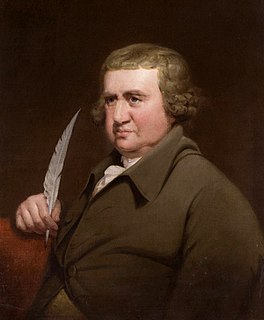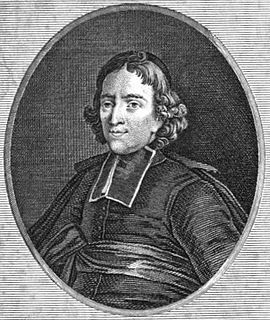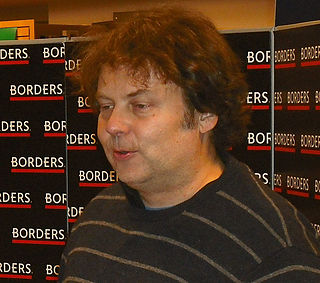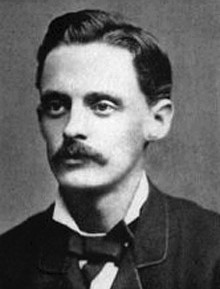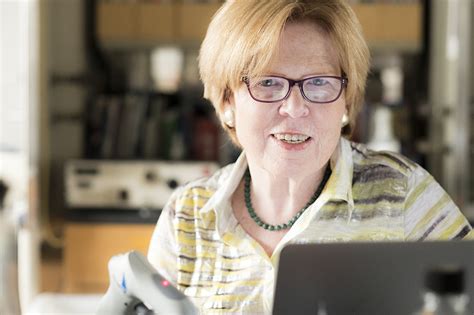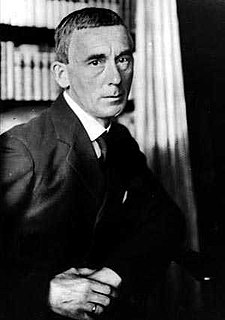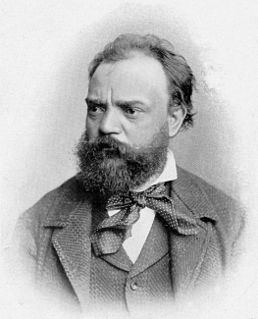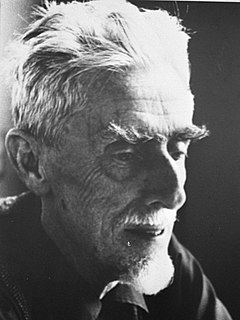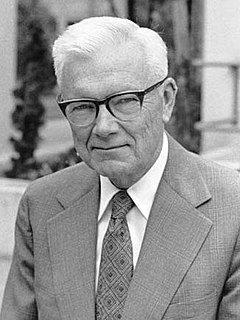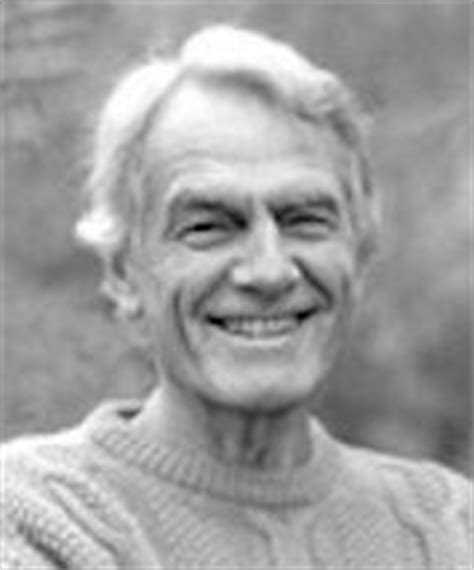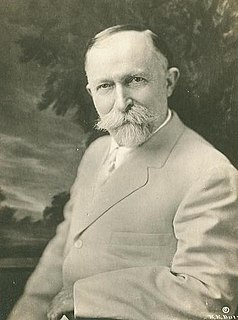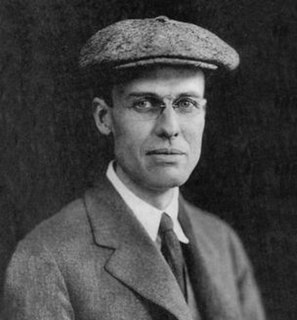Top 413 Inventions Quotes & Sayings - Page 7
Explore popular Inventions quotes.
Last updated on April 15, 2025.
Our inventions are wont to be pretty toys, which distract our attention from serious things. They are but improved means to an unimproved end, an end which it was already but too easy to arrive at; as railroads lead to Boston or New York. We are in great haste to construct a magnetic telegraph from Maine to Texas; but Maine and Texas, it may be, have nothing important to communicate.
She had lost herself somewhere along the frontier between her inventions, her stories, her fantasies and her true self. The boundaries had become effaced, the tracks lost, she had walked into pure chaos, and not a chaos which carried her like the galloping of romantic riders in operas and legends, but which suddenly revealed the stage props: a papier-mâché horse.
With whomsoever or wheresoever may rest the present causes of difficulty that apparently exist towards either the completion of the old engine, or the commencement of the new one, we trust they will not ultimately result in this generation's being acquainted with these inventions through the medium of pen, ink and paper merely; and still more do we hope, that for the honour of our country's reputation in the future pages of history, these causes will not lead to the completion of the undertaking by some other nation or government.
The arts and sciences, in general, during the three or four last centuries, have had a regular course of progressive improvement. The inventions in mechanic arts, the discoveries in natural philosophy, navigation and commerce, and the advancement of civilization and humanity, have occasioned changes in the condition of the world and the human character which would have astonished the most refined nations of antiquity. A continuation of similar exertions is everyday rendering Europe more and more like one community, or single family.
An old essay by John Updike begins, 'We live in an era of gratuitous inventions and negative improvements.' That language is general and abstract, near the top of the ladder. It provokes our thinking, but what concrete evidence leads Updike to his conclusion ? The answer is in his second sentence : 'Consider the beer can.' To be even more specific, Updike was complaining that the invention of the pop-top ruined the aesthetic experience of drinking beer. 'Pop-top' and 'beer' are at the bottom of the ladder, 'aesthetic experience' at the top.
The treasury of America lies in those ambitions, those energies, that cannot be restricted to a special favored class. It depends upon the inventions of unknown men, upon the originations of unknown men, upon the ambitions of unknown men. Every country is renewed out of the ranks of the unknown, not out of the ranks of those already famous and powerful and in control.
A lot of the strings that hold us like puppets are really inventions of our own minds. I'm not saying that there aren't armies and police and various ways to punish deviants, but there isn't any way to punish a large number of deviants. It's too expensive to even try. So, the solution is to colonize the minds of children as they're growing up, so that they become their own police, and to report on others who are deviating.
In my own time there have been inventions of this sort, transparent windows tubes for diffusing warmth equally through all parts of a building short-hand, which has been carried to such a perfection that a writer can keep pace with the most rapid speaker. But the inventing of such things is drudgery for the lowest slaves; philosophy lies deeper. It is not her office to teach men how to use their hands. The object of her lessons is to form the soul.
Already nature is serving all those uses which science slowly derives on a much higher and grander scale to him that will be served by her. When the sunshine falls on the path of the poet, he enjoys all those pure benefits and pleasures which the arts slowly and partially realize from age to age. The winds which fan his cheek waft him the sum of that profit and happiness which their lagging inventions supply.
Perchance, coming generations will not abide the dissolution of the globe, but, availing themselves of future inventions in aerial locomotion, and the navigation of space, the entire race may migrate from the earth, to settle some vacant and more western planet.... It took but little art, a simple application of natural laws, a canoe, a paddle, and a sail of matting, to people the isles of the Pacific, and a little more will people the shining isles of space. Do we not see in the firmament the lights carried along the shore by night, as Columbus did? Let us not despair or mutiny.
All rituals are paradoxical and dangerous enterprises, the traditional and improvised, the sacred and the secular. Paradoxical because rituals are conspicuously artificial and theatrical, yet designed to suggest the inevitability and absolute truth of their messages. Dangerous because when we are not convinced by a ritual we may become aware of ourselves as having made them up, thence on the paralyzing realization that we have made up all our truths; our ceremonies, our most precious conceptions and convictions - all are mere inventions.
I am sorry the infernal Divinities, who visit mankind with diseases, and are therefore at perpetual war with Doctors, should have prevented my seeing all you great Men at Soho to-day-Lord! what inventions, what wit, what rhetoric, metaphysical, mechanical and pyrotecnical, will be on the wing, bandy'd like a shuttlecock from one to another of your troop of philosophers! while poor I, I by myself I, imprizon'd in a post chaise, am joggled, and jostled, and bump'd, and bruised along the King's high road, to make war upon a pox or a fever!
Dill was off again. Beautiful things floated around in his dreamy head. He could read two books to my one, but he preferred the magic of his own inventions. He could add and subtract faster than lightning, but he preferred his own twilight world, a world where babies slept, waiting to be gathered like morning lilies.
We have resorted to every means to win back the position that Adam lost. We have tried through education, through philosophy, through religion, through governments to throw off our yoke of depravity and sin. All our knowledge, all our inventions, all our developments and ambitious plans move us ahead only a very little before we drop back again to the point from which we started. For we are still making the same mistake that Adam made - - we are still trying to be king in our own right, and with our own power, instead of obeying God's law.
Think hard about the reasons for believing and not believing, what your religion teaches you and demands so inexorably that you believe. I am convinced that if you follow closely the natural light of your spirit, you will see ... that all the religions in the world are only human inventions and that everything your religion teaches you and forces you to believe as supernatural and divine is at heart only error, lie, illusion and trickery.
Very little comes easily to our poor, benighted species (the first creature, after all, to experiment with the novel evolutionary inventions of self-conscious philosophy and art). Even the most "obvious," "accurate," and "natural" style of thinking or drawing must be regulated by history and won by struggle. Solutions must therefore arise within a social context and record the complex interactions of mind and environment that define the possibility of human improvement.
The source of sexual power is curiosity, passion. You are watching its little flame die of asphyxiation. Sex does not thrive on monotony. Without feeling, inventions, moods, no surprises in bed. Sex must be mixed with tears, laughter, words, promises, scenes, jealousy, envy, all of the spices of fear, foreign travel, new faces, novels, stories, dreams, fantasies, music, dancing, opium, wine.
When man invented the bicycle he reached the peak of his attainments. Here was a machine of precision and balance for the convenience of man. And (unlike subsequent inventions for man's convenience) the more he used it, the fitter his body became. Here, for once, was a product of man's brain that was entirely beneficial to those who used it, and of no harm or irritation to others. Progress should have stopped when man invented the bicycle.
Some people think it's psuedo-science, but it's called morphic resonance. It's when someone thinks of an idea, it makes it easier for someone else to think of the idea. That's why you should do crossword puzzles later in the day, because other people have thought about the answers. That's why you hear about people coming up with inventions almost at the same time, because someone else is thinking about it. That's why whenever I have a really good idea, I'm always worried about theft.
Another argument of hope may be drawn from this-that some of the inventions already known are such as before they were discovered it could hardly have entered any man's head to think of; they would have been simply set aside as impossible. For in conjecturing what may be men set before them the example of what has been, and divine of the new with an imagination preoccupied and colored by the old; which way of forming opinions is very fallacious, for streams that are drawn from the springheads of nature do not always run in the old channels.
Shall an invention be patented or donated to the public freely? I have known some well-meaning scientific men ... to look askance at the patenting of inventions, as if it were a rather selfish and ungracious act, essentially unworthy. The answer is very simple. Publish an invention freely, and it will almost surely die from lack of interest in its development. It will not be developed and the world will not be benefited. Patent it, and if valuable, it will be taken up and developed into a business.
There is first the problem of acquiring content, which is learning. There is another problem of acquiring learning skills, which is not merely learning, but learning to learn, not velocity, but acceleration. Learning to learn is one of the great inventions of living things. It is tremendously important. It makes evolution, biological as well as social, go faster. And it involves the development of the individual.
As to the human race. There are many pretty and winning things about the human race. It is perhaps the poorest of all the inventions of all the gods but it has never suspected it once. There is nothing prettier than its naive and complacent appreciation of itself. It comes out frankly and proclaims without bashfulness or any sign of a blush that it is the noblest work of God. It has had a billion opportunities to know better, but all signs fail with this ass. I could say harsh things about it but I cannot bring myself to do it-it is like hitting a child.
A book is made from a tree. It is an assemblage of flat, flexible parts (still called "leaves") imprinted with dark pigmented squiggles. One glance at it and you hear the voice of another person, perhaps someone dead for thousands of years. Across the millennia, the author is speaking, clearly and silently, inside your head, directly to you. Writing is perhaps the greatest of human inventions, binding together people, citizens of distant epochs, who never knew one another. Books break the shackles of time ? proof that humans can work magic.
She [my mother] said, "You are fiercely protective of your inventions because you are your fans." She helped me understand my own feelings. When someone has pulled the wool over my eyes, I feel that they have pulled the wool over the eyes of millions of fans around the world. She helped me to forgive. You can't force people to have the same world consciousness and awareness as you do.
O, mighty, divinely delimited wisdom of walls, boundaries! I is perhaps the most magnificent of all inventions. Man ceased to be a wild animal only when he build the first wall. Men ceased to be a wild man only when we built the Green Wall, only when, by means of that wall, we isolated our perfect machine world from the irrational, ugly world of trees, birds, and animals.
Data isn't information. ... Information, unlike data, is useful. While there's a gulf between data and information, there's a wide ocean between information and knowledge. What turns the gears in our brains isn't information, but ideas, inventions, and inspiration. Knowledge-not information-implies understanding. And beyond knowledge lies what we should be seeking: wisdom.
I love technology. Matches, to light a fire is really high tech. The wheel is REALLY one of the great inventions of all time. Other than that I am an ignoramus about technology. I once looked for the 'ON' button on the computer and came to find out it was on the back. Then I thought, anyone who would put the 'on' switch on the back, where you can't find it, doesn't do any good for my psyche. The one time I did get the computer on, I couldn't turn the damn thing off!
We may seem the weakest and most insignificant of all the Realms, but our strength comes in other ways. We have what no other race has: imagination. Any one of us, even the lowliest, can create worlds within ourselves; we can people them with the most extraordinary creatures, the most amazing inventions, the most incredible things. We can live in those worlds ourselves, if we choose; and in our own worlds, we can be as we want to be. Imagination is as close as we will ever be to godhead, Poison, for in imagination, we can create wonders.
I say that creeds, dogmas, and theologies are inventions of the mind. It is the nature of the mind to make sense out of experience, to reduce the conglomerates of experience to units of comprehension which we call principles, or ideologies, or concepts. Religious experience is dynamic, fluid, effervescent, yeasty. But the mind can't handle these so it has to imprison religious experience in some way, get it bottled up. Then, when the experience quiets down, the mind draws a bead on it and extracts concepts, notions, dogmas, so that religious experience can make sense to the mind.
At first he who invented any art that went beyond the common perceptions of man was naturally admired by men, not only because there was something useful in the inventions, but because he was thought wise and superior to the rest. But as more arts were invented, and some were directed to the necessities of life, others to its recreation, the inventors of the latter were always regarded as wiser than the inventors of the former, because their branches of knowledge did not aim at utility.
My belief is firm in a law of compensation. The true rewards are ever in proportion to the labor and sacrifices made. This is one of the reasons why I feel certain that of all my inventions, the Magnifying Transmitter will prove most important and valuable to future generations. I am prompted to this prediction not so much by thoughts of the commercial and industrial revolution which it will surely bring about, but of the humanitarian consequences of the many achievements it makes possible. Considerations of mere utility weigh little in the balance against the higher benefits of civilization.
At the beginning of this marvelous era it was natural to expect, and it was expected, that laborsaving inventions would lighten the toil and improve the condition of the laborer; that the enormous increase in the power of producing wealth would make real poverty a thing of the past... From Progress and Poverty, To those who, seeing the vice and misery that spring from the unequal distribution of wealth and privilege, feel the possibility of a higher social state and would strive for its attainment.
My own duty as a teacher...is not so much to interpret Beethoven, Wagner, or other masters of the past, but to give what encouragement I can to the young musicians of America. I...hope that just as this nation has already surpassed so many others in marvelous inventions and feats of engineering and commerce, and has made an honorable place for itself in literature in one short century, so it must assert itself on the...art of music...To bring about this result, we must trust the very youthful enthusiasm and patriotism of this country.
At Facebook, we're inspired by technologies that have revolutionized how people spread and consume information. We often talk about inventions like the printing press and the television - by simply making communication more efficient, they led to a complete transformation of many important parts of society. They gave more people a voice. They encouraged progress. They changed the way society was organized. They brought us closer together.
There is something in such laws that takes the breath away. They are not discoveries or inventions of the human mind, but exist independently of us. In a moment of clarity, one can at most discover that they are there and take them into account. Long before there were people on the earth, crystals were already growing in the earth's crust. On one day or another, a human being first came across such a sparkling morsel of regularity lying on the ground or hit one with his stone tool and it broke off and fell at his feet, and he picked it up and regarded it in his open hand, and he was amazed.
The graveyard is the richest place on earth, because it is here that you will find all the hopes and dreams that were never fulfilled, the books that were never written, the songs that were never sung, the inventions that were never shared, the cures that were never discovered, all because someone was too afraid to take that first step, keep with the problem, or determined to carry our their dream.
Writing fiction lets you be a little more emotional and unguarded, a little freer. Writing fictional characters is also really different from writing about real people. In nonfiction, you can only say so much about the people you interact with. After all, they're actual people, their version of their story trumps yours. In a novel, you can build a character, using certain parts or impressions of someone you know, and guessing or inventing others, without having to worry that your guesses or memories or inventions are wrong.
Our first and most pressing problem is how to do away with warfare as a method of solving conflicts between national groups or between groups within a society who have different views about how the society is to be run. If you look back, you will see that warfare was an invention, just as ways of handling government or taxes are inventions. You will see, too, that once people use an invention they go on using it until they find another which they think is superior.
The beginning of civilisation is the discovery of some useful arts, by which men acquire property, comforts, or luxuries. The necessity or desire of preserving them leads to laws and social institutions. The discovery of peculiar arts gives superiority to particular nations ... to subjugate other nations, who learn their arts, and ultimately adopt their manners;- so that in reality the origin as well as the progress and improvement of civil society is founded in mechanical and chemical inventions.
One way to think about play, is as the process of finding new combinations for known things--combinations that may yield new formsof expression, new inventions, new discoveries, and new solutions....It's exactly what children's play seems to be about and explains why so many people have come to think that children's play is so important a part of childhood--and beyond.
Significant inventions are not mere accidents. The erroneous view [that they are] is widely held, and it is one that the scientific and technical community, unfortunately, has done little to dispel. Happenstance usually plays a part, to be sure, but there is much more to invention than the popular notion of a bolt out of the blue. Knowledge in depth and in breadth are virtual prerequisites. Unless the mind is thoroughly charge beforehand, the proverbial spark of genius, if it should manifest itself, probably will find nothing to ignite.
Motors make noise and that tells you about the feelings and attitudes that went into it. Something was more important than sensory pleasure - nobody would invent a chair or dish that smelled bad or that made horrible noises - why were motors invented noisy? How could they possibly be considered complete or successful inventions with this glaring defect? Unless, of course, the aggressive, hostile, assaultive sound actually served to express some impulse of the owner.
It is India that gave us the ingenious method of expressing all numbers by means of ten symbols, each symbol receiving a value of position as well as an absolute value; a profound and important idea which appears so simple to us now that we ignore its true merit. But its very simplicity and the great ease which it has lent to computations put our arithmetic in the first rank of useful inventions; and we shall appreciate the grandeur of the achievement the more when we remember that it escaped the genius of Archimedes and Apollonius, two of the greatest men produced by antiquity.
In order to get one of the greatest inventions of the modern age, in other words, we thought we needed the solitary genius. But if Alexander Graham Bell had fallen into the Grand River and drowned that day back in Brantford, the world would still have had the telephone, the only difference being that the telephone company would have been nicknamed Ma Gray, not Ma Bell.
Finding the center of strength within ourselves is in the long run the best contribution we can make to our fellow men. ... One person with indigenous inner strength exercises a great calming effect on panic among people around him. This is what our society needs - not new ideas and inventions; important as these are, and not geniuses and supermen, but persons who can be, that is, persons who have a center of strength within themselves.
All the inventions and devices ever constructed by the human hand or conceived by the human mind, no matter how delicate, how intricate and complicated, are simple, childish toys compared with that most marvelously wrought mechanism, the human body. Its parts are far more delicate, and their mutual adjustments infinitely more accurate, than are those of the most perfect chronometer ever made.
Thwarted, or starved, in the important objects proper to young capacities, the boys and young men naturally find or invent deviant objects for themselves. ... Their choices and inventions are rarely charming, usually stupid, and often disastrous; we cannot expect average kids to deviate with genius. But on the other hand, the young men who conform to the dominant society become for the most part apathetic, disappointed, cynical and wasted.
The ways of living have been rendered vastly easier by a multitude of inventions, by the increasing wealth of the country, by better and more intelligent service; and yet life is by no means easier, but indeed hard. The demands on time, whether real or imagined, have increased in a greater ratio than the supply of facilities for answering them, and as the earth provokingly continues to revolve on its axis just as rapidly as of old, the days are never long enough for all the duties which they bring.
One of the weaknesses of much abstract painting is the attempt to substitute the inventions of the intellect for a pristine imaginative conception. The inner life of a human being is a vast and varied realm and does not concern itself alone with stimulating arrangements of color, form and design. The term 'life' as used in art is something not to be held in contempt, for it applies all of its existence, and the province of art is to react to it and not to shun it. Painting will have to deal more fully and less obliquely with life and nature's phenomena before it can again be great.
Scientific theories never dictate human values, but they can often cast new light on ethical issues. From a sexual selection viewpoint, moral philosophy and political theory have mostly been attempts to shift male human sexual competitiveness from physical violence to the peaceful accumulation of wealth and status. The rights to life, liberty, and property are cultural inventions that function, in part, to keep males from killing and stealing from one another while they compete to attract sexual partners.
We shall not read it for its sociological insights, which are non-existent, nor as science fiction, because it has a general air of implausibility; but there is one high poetic fancy in the New Atlantis that stays in the mind after all its fancies and inventions have been forgotten. In the New Atlantis, an island kingdom lying in very distant seas, the only commodity of external trade is light: Bacon's own special light, the light of understanding.









